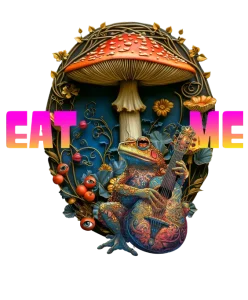Introduction: Depression, a complex and debilitating mental health condition, affects millions of people worldwide. Traditional treatments often focus on pharmaceutical interventions and psychotherapy, but there is growing interest in alternative approaches. Among these alternatives, psilocybin-assisted therapy has emerged as a promising avenue for individuals struggling with depression. In this article, we will delve into the groundbreaking research and transformative potential of psilocybin in alleviating depression, shedding light on its mechanisms and the hope it offers to those seeking relief.
I. Understanding Depression: A Multifaceted Challenge A. The Scope of Depression
Depression is more than just fleeting sadness; it is a pervasive mental health disorder characterized by persistent low mood, lack of interest or pleasure, and a range of physical and cognitive symptoms.
B. Limitations of Conventional Treatments
While antidepressant medications and psychotherapy are widely used, they do not provide effective relief for everyone. Many individuals experience treatment-resistant depression or encounter undesirable side effects from medications.
II. The Resurgence of Psychedelic Research A. A New Approach to Mental Health
In recent years, a resurgence of interest in psychedelic compounds like psilocybin has sparked a reevaluation of their therapeutic potential. Psilocybin’s ability to induce profound altered states of consciousness has led to investigations into its effects on mental health conditions, including depression.
B. The Role of Psychedelic-Assisted Therapy
Psychedelic-assisted therapy involves the guided use of psychedelic substances in a therapeutic context. Research has shown that the combination of the psychedelic experience with therapeutic support can lead to breakthroughs in psychological healing.
III. How Psilocybin Works on the Brain A. Neural Plasticity and Neurogenesis
Psilocybin’s effects on the brain go beyond mere chemical interactions. Research suggests that it may promote neural plasticity and neurogenesis, the formation of new brain cells and connections. These changes are associated with resilience and adaptability in the face of stress and emotional challenges.
B. Rebooting the Brain
Depression often involves rigid thought patterns and negative cognitive loops. Psilocybin’s ability to temporarily disrupt the default mode network (DMN), a brain network associated with self-referential thoughts, allows individuals to break free from these repetitive patterns and gain new perspectives.
IV. Psilocybin-Assisted Therapy for Depression A. The Therapeutic Process
Psilocybin-assisted therapy is conducted in a carefully controlled setting with trained therapists. The individual ingests a predetermined dose of psilocybin and engages in therapy sessions designed to support and guide the experience.
B. Facilitating Emotional Processing
During the psychedelic experience, individuals often confront suppressed emotions, traumatic memories, and unresolved issues. With the support of a trained therapist, they can process and reframe these experiences, leading to emotional catharsis and resolution.
C. Altered Perceptions of Self
Many individuals who undergo psilocybin-assisted therapy report experiencing a dissolution of ego boundaries and a sense of interconnectedness. This altered state can lead to profound insights into one’s sense of self and place in the world.
V. Promising Clinical Trials and Results A. Yale University’s Research
Pioneering studies conducted by institutions like Yale University have demonstrated the potential of psilocybin-assisted therapy in reducing depression symptoms and promoting emotional well-being. Participants often experience significant improvements lasting long after the treatment sessions.
B. Sustained Effects
Unlike conventional antidepressants that require ongoing use, psilocybin-assisted therapy often leads to sustained improvements in mood and overall well-being even after a limited number of sessions.
VI. Addressing Treatment-Resistant Depression A. The Breakthrough for Treatment-Resistance
One of the most significant breakthroughs of psilocybin-assisted therapy is its effectiveness in treating individuals with treatment-resistant depression. Even those who have not responded to traditional treatments may find relief through this novel approach.
B. Exploring the Underlying Causes
Psilocybin-assisted therapy allows individuals to explore the underlying causes of their depression, including past traumas, unresolved emotions, and negative thought patterns. This depth of exploration can lead to profound healing and transformation.
VII. The Importance of Integration A. The Role of Integration
The transformative experiences induced by psilocybin-assisted therapy need to be integrated into everyday life. Integration involves reflecting on insights gained, implementing positive changes, and seeking ongoing therapeutic support.
B. Harnessing the Insights
The insights gained during the psychedelic experience can serve as tools for navigating life’s challenges and fostering personal growth. Integrating these insights into daily routines can contribute to sustained well-being.
VIII. Ethical Considerations and Future Possibilities A. Ethical Use and Research
As psilocybin-assisted therapy gains recognition, there is a need for responsible and ethical use. Research, safety protocols, and qualified therapists are essential components of this emerging field.
B. A Paradigm Shift in Mental Health
The potential of psilocybin-assisted therapy goes beyond depression. Research is expanding to explore its effects on anxiety, PTSD, addiction, and existential distress. A paradigm shift in mental health treatment is underway, with psychedelics playing a pivotal role.
IX. Conclusion The journey of psilocybin from ancient shamanic rituals to modern clinical trials is a testament to its profound potential in addressing depression. As our understanding of the brain, consciousness, and mental health deepens, psilocybin-assisted therapy offers new avenues of hope for individuals seeking relief from the heavy burden of depression.
While psilocybin-assisted therapy is not a panacea, its transformative effects on neural plasticity, emotional processing, and self-perception hold promise for a more holistic and personalized approach to mental health. As research continues and attitudes shift, the integration of psychedelics into mainstream mental health care has the potential to reshape the landscape of treatment and foster a more compassionate understanding of the human mind and its intricate complexities.



